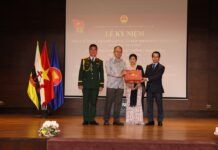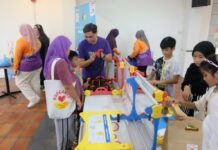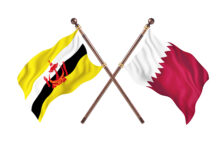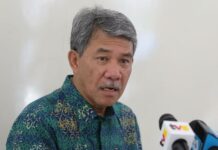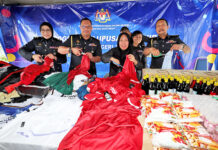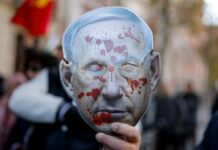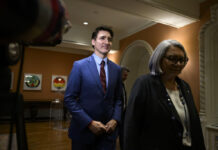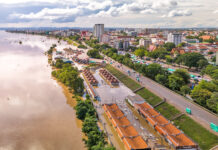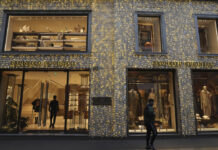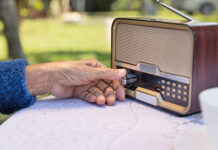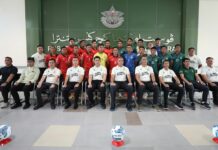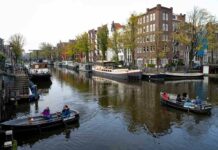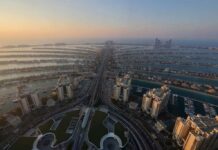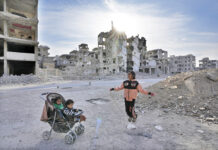UMM AL-KHAIR (AP) – First came the Israeli military bulldozers, which tore down a quarter of the homes in the West Bank Bedouin village of Umm al-Khair. Then came the settler attacks.
In the aftermath, dozens of people were left homeless and without consistent access to water and electricity. Several were injured from pepper spray and sticks, and the village’s water pipe was cut – all, they said, as Israeli soldiers looked on.
“Where shall I go?” said Yasser Hathaleen, sitting near the rubble of his family’s homes, exposed to the blazing heat of summer with little to protect him. “To whom do I complain? I want a law to protect me. Where are the people of law?”
Bedouin communities in the West Bank face a double threat of rampant, unpunished Israeli settler violence and a frenzy of state-backed demolitions. Together, the two are pushing a growing number of Bedouin from their land and making any eventual independent Palestinian state a more distant reality, rights groups say.
The threats have intensified since the start of the war in Gaza, as settler violence surges across the West Bank – even as Israel faces growing international pressure to clamp down.
Settler advocates hold key Israeli Cabinet positions that grant them important say over the West Bank, giving settlers greater control over their destiny in the territory.
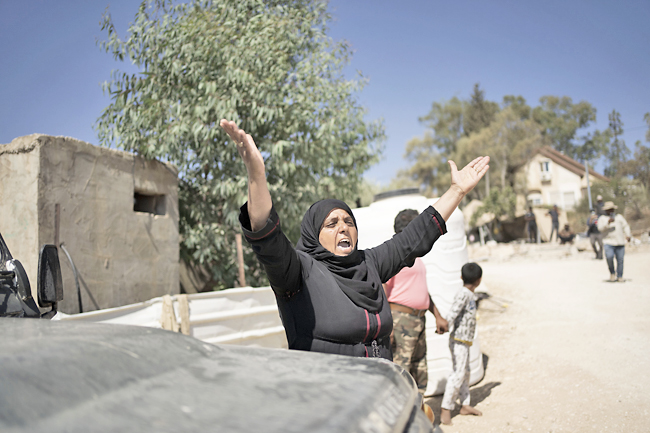
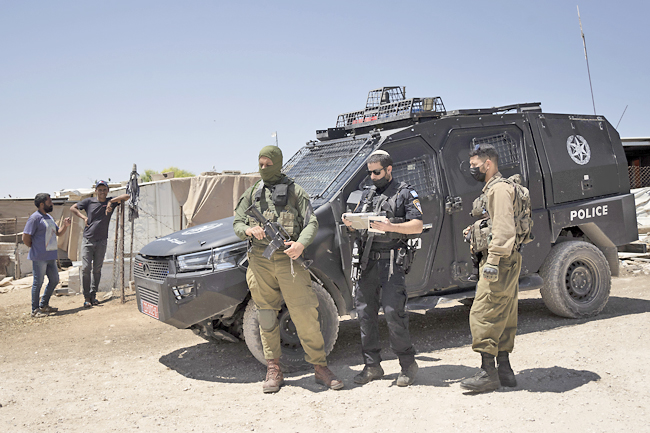
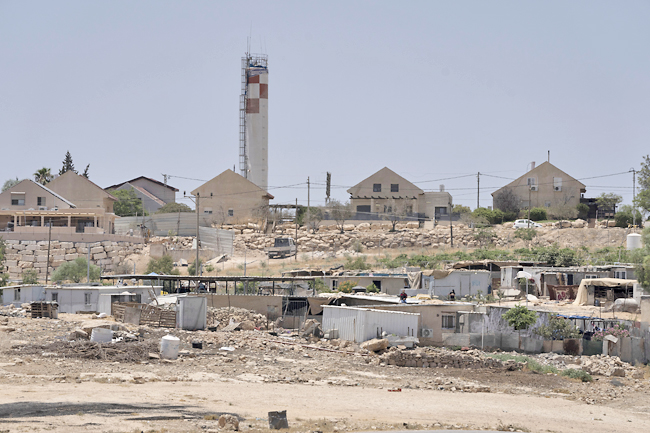
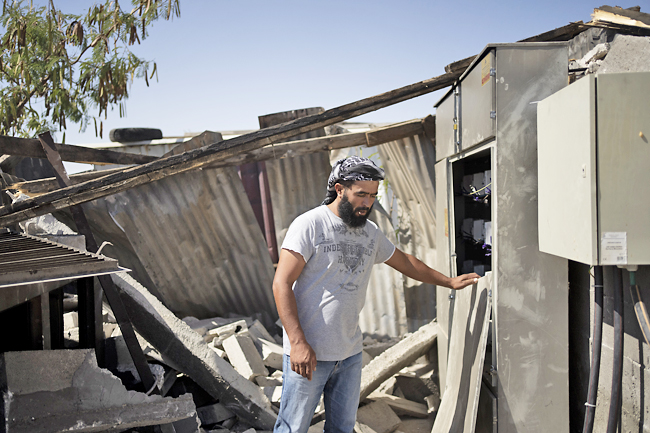
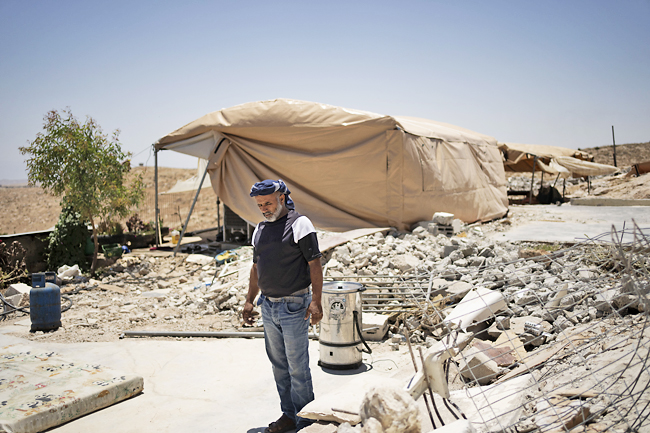
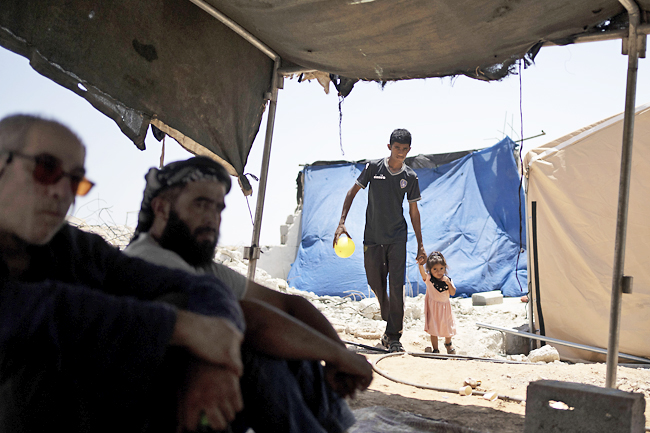
RESIDENTS DESCRIBE THE ESCALATING ATTACKS
Settler violence and demolitions are nothing new in Umm Al-Khair, founded in the 1950s by traditionally nomadic people known as Bedouin, who settled there just after being uprooted from the Negev desert during the 1948 war surrounding Israel’s creation.
Two decades later, Umm Al-Khair fell under Israeli security control when Israel captured the West Bank. Though Palestinians seek the area as the heart of a future independent state, Israel has established a rash of settlements across the territory, viewed by the international community as illegal and an obstacle to peace.
Settler attacks, residents say, began in the 1980s, after Israel built the settlement of Carmel just metres away from Umm Al-Khair. Today, Carmel’s large houses and lush gardens sit across a barbed-wire fence from the village, whose pipes are not connected to the Israeli water network and whose homes of corrugated tin bake in the summer sun.
Settler attacks were sporadic but not debilitating, residents said, until settlers established an unauthorised outpost, called ‘Roots Farm’, on a nearby hilltop.
“Since then, this farm, their only goal is to target the community, to violate the people’s lives and to attack and insult people on a daily basis,” said 21-year-old Tariq Hathaleen, an English teacher in Umm Al-Khair. Most villagers bear the last name Hathaleen, all descendants of the village founder.
On July 1, in a particularly brutal recent attack described by residents and activists, settlers injured about 10 people in the village with sticks and pepper spray that made people’s eyes water.
“There were so many women on the ground, lying on the earth, struggling to breathe,” said Basel Adra, a Palestinian activist who was in Umm Al-Khair that day.
Videos taken by Palestinians in the village and sent to The Associated Press showed a man residents identified as the leader of the outpost clutching a rifle as he strides past Israeli soldiers into the village.
The military told AP the forces were there “to maintain the security of all residents of the area, and to act to prevent terrorism and activities that endanger the citizens of the State of Israel”.
In another video, taken on July 3 by an Umm Al-Khair resident, young settlers are seen tampering with the village’s water pipes as soldiers look on. The military said soldiers helped repair the pipe soon after.
But residents said the pipe was damaged by settlers again days later, showing AP video of a settler near the freshly damaged pipe. When sent the video, the military told AP the pipe was damaged by erosion, not settlers.
To Tariq Hathaleen, the settlers and the state are working toward the same goal: expelling his community from their lands. Umm Al-Khair residents say they have lived there since they were expelled from the Negev during what’s referred to as the ‘Nakba’ – Arabic for catastrophe – when roughly 700,000 Palestinians fled or were driven out of what today is Israel.
The residents showed AP handwritten contracts appearing to show land sales from neighbouring Palestinian towns to the founder of the village, Tariq’s grandfather, during the period when Jordan controlled the West Bank.
COGAT, the Israeli military body coordinating humanitarian aid efforts, did not respond to a request for comment on land ownership in the area.
“There’s no legal pretext for soldiers to remove us from our land. So what the settlers do is they make our life the most hard life, so we eventually leave on our own,” said Tariq Hathaleen.

